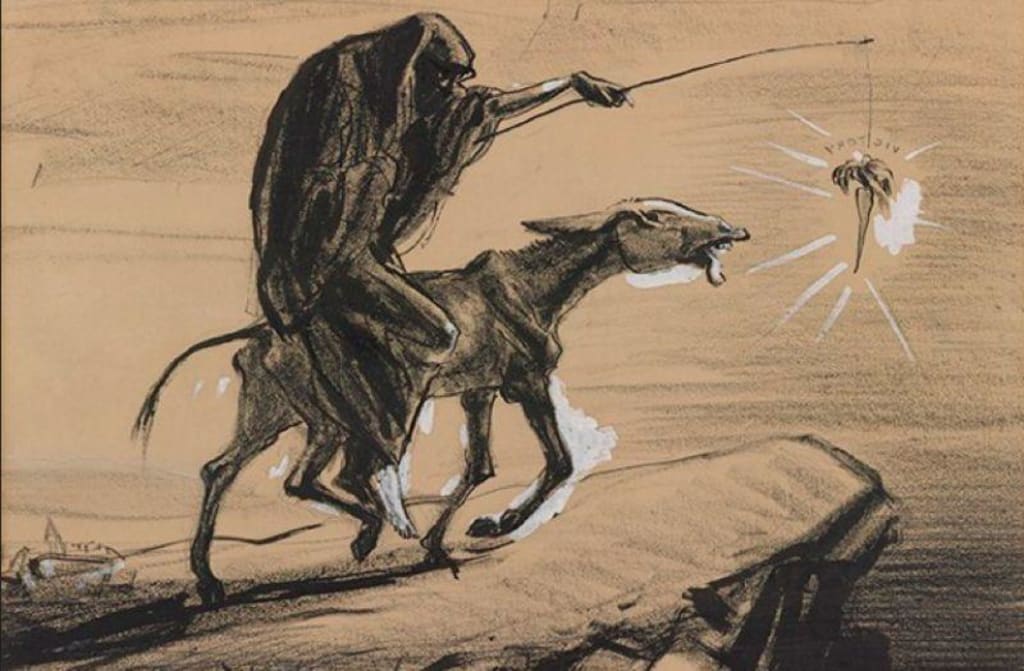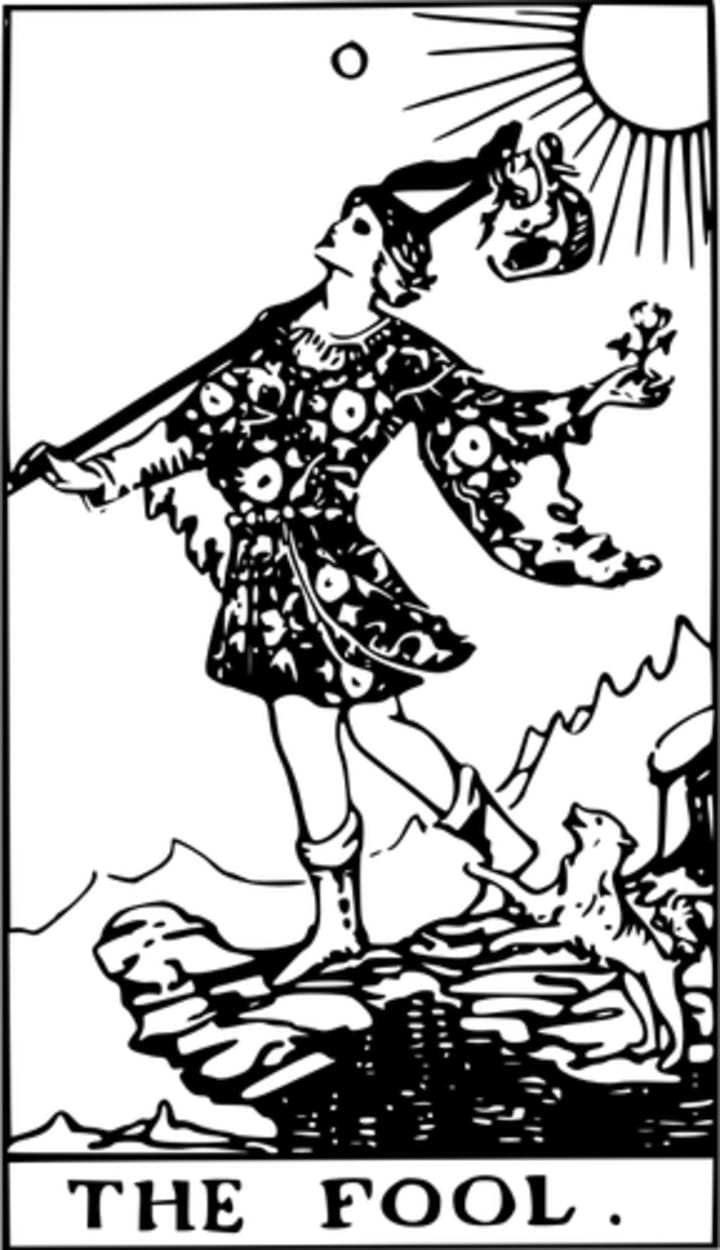Carrot on a Stick
Society and the Masterless Race

Slaves almost always outnumber their masters, and throughout much of history could easily have overthrown them. However, revolt is always a long time coming. Why?
Slaves do not revolt for the same reason that their masters will not admit to wrongdoing: because the tumultuous change of circumstances, the upset of the established order, carries with it the possibility of a degradation of their quality of life, and even the possibility of total annihilation.
Quality of life? What quality of life could a slave possibly have? Like any individual, the slave is insulated within his or her subjective experience. The difference between an attempt at revolt and obeying their master is the difference between a beating and a little extra food from the master's table. Or, more ominous, the difference between life and death.
To the individual master, of course, it is the difference between free labor and having to do it his or herself. This explains the hypocrisy of slaveowners throughout history: the asinine circumlocutions used to justify their inhumane, undignified subjugation of living, breathing human beings while extolling the virtues of liberty among themselves.
Among groups, individuals tend to hang back and wait to see what the other individuals are going to do before risking their own positions. Often, they watch that first individual rush to his or her doom and cull from this story the moral that “There but for the grace of God go I”. At this point, they choose to abstain.
Later, after enough people work up the courage to form a group, the heroic sacrifice of that first individual is woven into a story that assuages the guilt of the cowardly. Conveniently and conspicuously omitted from the tale is the fact of their forerunners’ flaccid inaction at the critical moment. Extolled is the virtue of the sacrifice.
The masters see the suspicious, angry look of the gathering crowd. They see the danger of the mob rush, the crowd riot, the herd stampede. If they have read their Machiavelli and learned well the lesson of Constantine’s machinations at the Council of Nicaea, they will utilize the hero story that the crowd has fabricated.
“Yea, and verily,” the masters will cry, “but let us all follow the example of that brave individual's great sacrifice!” At which point the masters are no longer compelled to use force to coerce the slaves to do the labor but can rather convince the slaves to do it of their own free will by offering them some metaphysical justification, whether it be in the afterlife, or in the aftermath of some perceived act of social justice. The master pretends to be just another one among the crowd, lamenting the brave sacrifice of the hero, and promising it will not have been in vain. Reference poor Boxer in George Orwell's Animal Farm.
Yet whether through coercion or connivance, the master's fate is always tied to that of the slave, at which point one might conclude that there are no masters, only slaves.
To explore this concept of a masterless race, let us use the analogy of the ass and its rider.
The rider weighs the ass down with cargo so that he can ride the ass up the precarious path to the top of the mountain. The ass does not want to go, of course, and why should it? The rider must give it some incentive. He ties a carrot to the end of a string and ties the string to a long stick. He sits atop the ass and dangles the carrot before it. The ass moves to eat the carrot wherever the rider dangles it. Thus does the rider climb the mountain atop the cargo-laden ass.
The ass could have stayed at the base of the mountain and foraged its own food. But it climbs the whole way, ever chasing that carrot. Once it reaches the top, it is just another weary ass with a carrot. That’s the story of the “slave” in this parable, but what of the “master”?
The master gained the top of the mountain with all his cargo intact, but his will is that much more diminished. He has not mastered himself or the mountain. He has only mastered the ass. If he could not have made it to the top of the mountain or survived the rigors of higher altitudes without the ass or the cargo it carried, is he really master of anything?
Certainly not.
Why, then, does revolt inevitably occur? Sometimes the rider runs out of carrots. Sometimes, the ass is as tired of carrots as it is of climbing the mountain.
Extending this analogy back into the realm of purely human endeavor, it only stands to reason that after so many generations, the plump, lazy masters will render themselves blind and stupid through the lack of self-mastery, while the slaves must eventually gain insight into their advantage beneath the lackadaisical entitlement of the master.
Then the cycle repeats, the wheel turns, this time with the “slaves” on top and the “masters” on bottom. Revolution, they call it, and aptly so.
All the former slaves cannot remain atop the wheel for long, lest the wheel turns again too quickly. Power struggles ensue. Eventually, someone comes out on top, walking the wheel while the others fall again to be crushed beneath it.
Why should any of us want a place on the wheel?
Might we become the axle?
Could we escape the wheel altogether? One who accomplished such would be the true master, but I suppose it is lonely on the top of the mountain without a weary ass to feed.

About the Creator
C. Rommial Butler
C. Rommial Butler is a writer, musician and philosopher from Indianapolis, IN. His works can be found online through multiple streaming services and booksellers.
Reader insights
Nice work
Very well written. Keep up the good work!
Top insights
Easy to read and follow
Well-structured & engaging content
Excellent storytelling
Original narrative & well developed characters
Expert insights and opinions
Arguments were carefully researched and presented
Eye opening
Niche topic & fresh perspectives
Heartfelt and relatable
The story invoked strong personal emotions
On-point and relevant
Writing reflected the title & theme






Comments
There are no comments for this story
Be the first to respond and start the conversation.